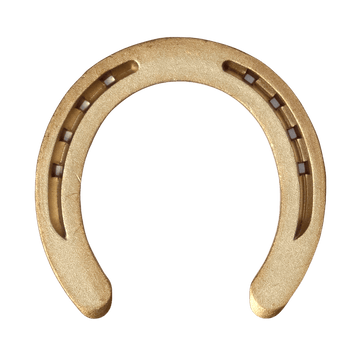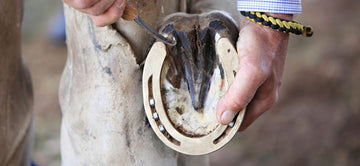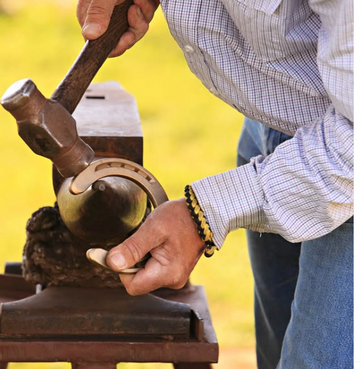Canine health care is crucial for your dog’s well-being. This guide covers key areas like regular vet visits, illness signs, medications, vaccinations, parasite control, dental care, grooming, nutrition, exercise, safe handling, spaying/neutering, and avoiding household hazards.
Key Takeaways
-
Regular veterinary check-ups are crucial for early detection of health issues and maintaining overall well-being in dogs.
-
Understanding signs of illness and administering medications correctly are essential for effective treatment and recovery.
-
Proper nutrition, regular exercise, and preventative care like vaccinations and parasite control ensure a long and healthy life for dogs.

Regular Veterinary Examinations
Regular veterinary examinations are the cornerstone of a healthy life for your dog. Puppies require frequent visits to the veterinarian every 3 to 4 weeks until they reach about 4 months old to monitor their development and administer essential vaccinations.
As your dog grows older, annual check-ups are necessary to detect any emerging health issues early on. For senior dogs or those with existing medical conditions, more frequent visits may be required to manage their health effectively.
These routine visits are invaluable as they allow veterinarians to detect conditions like heart murmurs, tumors, and arthritis before they become severe. Preventive health care becomes increasingly crucial as dogs age faster than humans, making early detection and treatment vital.
With a complete veterinary examination, you can ensure your dog receives the necessary vaccinations, dental care, and overall health maintenance to live a long, healthy life. Most dogs and pets benefit from this comprehensive care.
Recognizing Signs of Illness
Understanding the signs of illness in your dog is crucial for early intervention. Common symptoms to watch for include a lack of appetite, decreased activity, vomiting, diarrhea, frequent urination, coughing, sneezing, and discharge from the eyes, ears, or nose. Intestinal parasites like roundworms can also cause vomiting and diarrhea, so it’s essential to be vigilant. If your dog exhibits any unusual symptoms or behavior, acting quickly and seeking veterinary care can make a significant difference in their health outcome.
Regular wellness check-ups play a vital role in early disease detection, making treatments more effective and less costly. Being aware of changes in your dog’s health and behavior can prevent minor issues from developing into serious conditions. This proactive approach underscores the importance of routine veterinary visits and staying informed about your dog’s well-being.
Proper Medication Administration
Administering medication to your dog correctly is essential for their recovery and overall health. It is important to always read the label instructions carefully. Follow them closely when administering any type of medication. Avoid giving your dog medications not prescribed by a veterinarian, as this can lead to serious health complications. One effective method for administering pills is to hide them in treats like cheese or peanut butter, ensuring your dog swallows them without fuss.
For liquid medications, using a syringe to squirt the medication into the back of your dog’s mouth is effective, but be cautious not to tilt their head back to avoid choking. Consulting with your veterinarian can provide additional tips and alternative methods, such as suspending pills in liquid if necessary.
Proper medication administration is a critical skill for any dog owner, ensuring your pet receives the full benefit of their prescribed treatments.
Essential Vaccinations
Vaccinations are a crucial part of preventive health care for dogs, protecting them from various diseases. Core vaccines such as those for distemper, parvovirus, and rabies are essential for all dogs. These vaccinations help prevent severe illnesses that can be life-threatening and are often required by law. Non-core vaccines, like those for Bordetella and Lyme disease, may be recommended based on your dog’s lifestyle and exposure risk.
Consulting with your veterinarian is vital to determine a personalized vaccination schedule that meets your dog’s specific needs. This individualized approach ensures your dog receives the necessary protection without over-vaccination. Keeping up with vaccinations is one of the simplest yet most effective ways to safeguard your dog’s health.
Parasite Prevention and Control
Parasite prevention and control are essential components of maintaining your dog’s health. Common intestinal parasites include roundworms, hookworms, whipworms, and tapeworms, all of which can cause significant health issues if left untreated. Flea and tick control is also crucial, as these parasites can transmit diseases and cause discomfort. Using a flea comb regularly helps in identifying and removing fleas from your dog. During warmer months, daily inspections for fleas and ticks are recommended to catch and remove these pests early.
Heartworms, transmitted through mosquito bites, pose a severe threat to your dog’s heart and lungs. Year-round heartworm prevention is essential, particularly in areas with high mosquito populations. Regular fecal testing and consultations with your veterinarian are critical for developing effective parasite control strategies. The Companion Animal Parasite Council provides guidelines and research to help dog owners understand and manage these risks effectively.
Maintaining a parasite-free environment involves combining preventive measures with regular veterinary care. Staying vigilant and proactive helps protect your dog from harmful parasites, ensuring a healthy, comfortable life.

Dental Care for Dogs
Dental care is often overlooked but is vital for your dog’s overall health. Periodontal disease is the most common dental issue in dogs, often developing by the age of three if preventative measures are not taken. Daily brushing is the most effective way to prevent plaque and tartar buildup, which can lead to gingivitis and periodontal disease. Regular brushing, along with feeding dry food and providing chew toys, helps maintain your dog’s dental health.
Brushing your dog’s teeth two to three times a week can significantly reduce the risk of dental problems. Regular dental check-ups with your veterinarian are also essential to catch any issues early and keep your dog’s teeth and gums healthy. Good dental care can add years to your dog’s life and improve their quality of life significantly.
Grooming and Coat Maintenance
Regular grooming and coat maintenance are essential for keeping your dog in good condition. Brushing your dog’s coat regularly helps distribute natural oils, remove dead hair, and stimulate the skin, promoting a healthy coat. Depending on the breed, dogs should be bathed every two to four months unless they get particularly dirty. Using a dog-specific shampoo is important, as human shampoos can irritate their skin.
Trimming the hair around your dog’s feet prevents debris from accumulating and keeps them clean. For dogs with longer hair, using electric clippers to remove mats effectively is recommended. Regular grooming not only keeps your dog looking good but also contributes to their overall health and well-being.
Nutrition and Feeding Guidelines
Proper nutrition is the foundation of your dog’s health. Adult dogs typically benefit from high-quality dry dog food that meets their nutritional needs. Mixing premium dry food with water or broth can enhance its palatability and ensure your dog stays hydrated. Treats should be limited to no more than ten percent of your dog’s daily caloric intake to prevent obesity and other health issues.
Puppies require high-quality puppy food to support their growth and development. Feeding guidelines should be tailored to your dog’s age, size, and activity level, ensuring they receive the right balance of nutrients. Monitoring changes in your dog’s eating or drinking habits can provide early signs of health issues, allowing for timely intervention.
Exercise and Mental Stimulation
Regular exercise and mental stimulation are crucial for your dog’s overall health and well-being. Exercise helps burn calories, stimulate their minds, and maintain physical health. The amount of exercise needed varies based on factors such as breed, age, health status, and sex. Engaging your dog in mental activities, like training sessions or using puzzle toys, can be just as beneficial as physical exercise.
Activities like hide-and-seek and scent walks provide both physical and mental stimulation, keeping your dog engaged and happy. Regularly changing walking routes and rotating toys can also help maintain your dog’s interest and prevent boredom. Ensuring your dog gets adequate exercise and mental stimulation is key to their overall health and happiness.
Safe Handling Techniques
Safe handling techniques are essential for preventing injuries to both dogs and their handlers. When lifting a small dog, support their chest with one hand and their hind legs with the other. Avoid lifting small dogs by their forelegs, tail, or the back of their neck to prevent injury.
For larger dogs, lift from the underside, supporting both the chest and rear end. These techniques ensure safe handling and prevent potential injuries.
Spaying and Neutering
Spaying and neutering are important for preventing health issues and improving behavior in dogs. Spaying females around six months of age, ideally before their first heat, is recommended. Neutering males typically occurs between five and ten months of age. These procedures can prevent unwanted litters, reduce the risk of certain cancers, and decrease aggressive behavior in dogs.
Consulting with your veterinarian about the best time for spaying or neutering your dog ensures the procedure is done at the optimal age. This proactive step contributes to your dog’s long-term health and well-being.
Preventing Household Hazards
Preventing household hazards is crucial for keeping your dog safe. Common hazards include toxic cleaning agents, medicines, batteries, and certain plants, which can be harmful or fatal if ingested. Storing these items securely away from your dog is essential. Household items like batteries and medications can cause severe health issues if consumed, necessitating secure storage and supervision.
Insecticides, rodenticides, and certain fertilizers can have deadly effects on dogs, highlighting the need to keep these substances out of their reach. Electric cords pose a choking hazard and the risk of electric shock; they should be kept unplugged and securely stored.
Being proactive and vigilant helps prevent potential exposure to harmful substances, ensuring a safe environment for your dog.
Licensing and Identification
Licensing and identification are essential for ensuring your dog can be recovered if lost. Microchips, implanted under the skin, provide a permanent and internationally recognized means of identification. While ID tags are important, they should be supplemented with other identification methods for better chances of recovery.
ID tags can include important information such as the dog’s name, owner’s phone number, and any medical issues. Ensuring your dog has proper identification increases the likelihood of a safe return if they ever get lost.
Summary
Maintaining your dog’s health involves a combination of regular veterinary visits, proper medication administration, vaccinations, parasite control, dental care, grooming, nutrition, exercise, and safe handling.
Spaying and neutering, preventing household hazards, and ensuring proper identification are also crucial. By following these best practices, you can ensure your dog lives a long, healthy, and happy life.
Frequently Asked Questions
How often should I take my dog to the vet?
You should take adult dogs to the vet annually, while puppies need visits every 3 to 4 weeks until they reach about 4 months old. Older dogs or those with health issues may require more frequent check-ups.
What are the common signs of illness in dogs?
Common signs of illness in dogs include lack of appetite, decreased activity, vomiting, diarrhea, and respiratory symptoms like coughing or sneezing. If you notice any of these signs, it's essential to consult your veterinarian.
How can I make giving medication to my dog easier?
Making medication easier for your dog can be achieved by hiding pills in tasty treats like cheese or peanut butter. For liquid medications, use a syringe to administer it directly into the back of their mouth. This approach ensures your dog receives their medication effectively while still enjoying the process.
What vaccinations does my dog need?
Your dog needs core vaccines, including distemper, parvovirus, and rabies, while non-core vaccines like Bordetella and Lyme disease may be necessary depending on their lifestyle and exposure risk. It's best to consult your veterinarian to determine the appropriate vaccination schedule for your dog.
How can I prevent household hazards for my dog?
To prevent household hazards for your dog, securely store toxic substances such as cleaning agents, medicines, and certain plants out of their reach. Additionally, keep insecticides, rodenticides, fertilizers, and electric cords inaccessible to ensure their safety.










